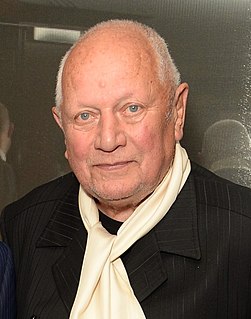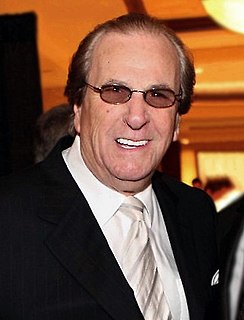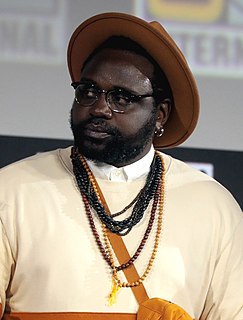A Quote by Steven Berkoff
After watching my poor mother being sometimes neglected by my father, it was almost tattooed on my brain that I would never cause hardship or despair to a partner.
Related Quotes
In the music business, to survive for so long, you have to be able to cut off from your emotions sometimes. And being a father, you're faced with that situation. I know that my father was, with me. I understand why he had to be distant, because to rip yourself away, time after time, is almost more devastating.
I mean, her father was an alcoholic, and her mother was the suffering wife of a man who she could never predict what he would do, where he would be, who he would be. And it's sort of interesting because Eleanor Roosevelt never writes about her mother's agony. She only writes about her father's agony. But her whole life is dedicated to making it better for people in the kind of need and pain and anguish that her mother was in.
I learned respect for womanhood from my father's tender caring for my mother, my sister, and his sisters. Father was the first to arise from dinner to clear the table. My sister and I would wash and dry the dishes each night at Father's request. If we were not there, Father and Mother would clean the kitchen together.
You've got that eternal idiotic idea that if anarchy came it would come from the poor. Why should it? The poor have been rebels, but they have never been anarchists; they have more interest than any one else in there being some decent government. The poor man really has a stake in the country. The rich man hasn't; he can go away to New Guinea in a yacht. The poor have sometimes been objected to being governed badly; the rich have always objected to being governed at all. Aristocrats were always anarchists, as you can see from the barons' wars.
How is it... that the Son and Holy Spirit are not co-unoriginate with the Father, if they are co-eternal with Him? Because they are from Him, though not after Him. 'Being unoriginate' necessarily implies 'being eternal,' but 'being eternal' does not entail 'being unoriginate,' so long as the Father is referred to as origin. So because They have a cause They are not unoriginate... a cause is not necessarily prior to its effects... Because time is not involved, They are to that extent unoriginate... for the sources of time are not subject to time.




































